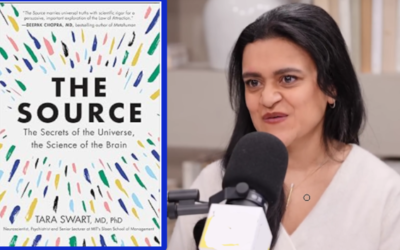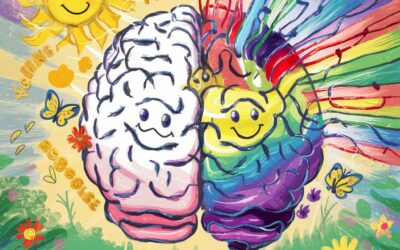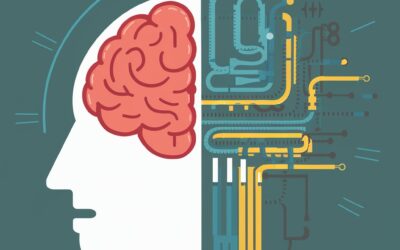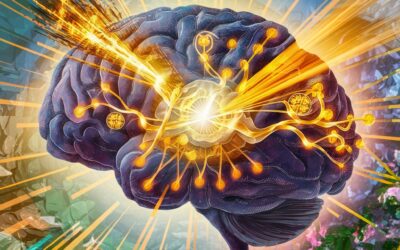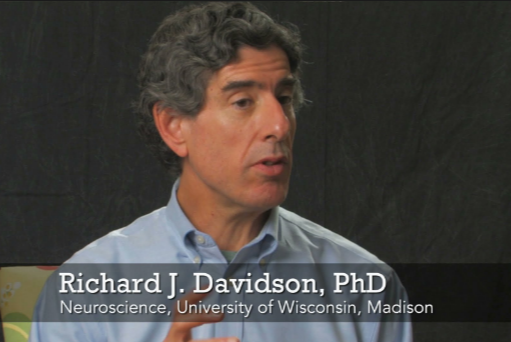 "I began with most of my focus on the negative side of things and then when I met the Dalai Lama in 1992, he asked me, 'why have you been using the tools of modern neuroscience just to study anxiety and stress and fear and depression?
"I began with most of my focus on the negative side of things and then when I met the Dalai Lama in 1992, he asked me, 'why have you been using the tools of modern neuroscience just to study anxiety and stress and fear and depression?
Why not use those same tools to study kindness and compassion?'
That was like the total wake-up call for me and it is in fact what we've been doing since that critical moment. One of the first ways in which we decided to begin something that his holiness encouraged us to do, which is to test individuals who spent years training their mind. These people have spent on average about 34,000 hours of lifetime practice.
In that particular experiment we were looking for signs in brain electrical signals. Whether those signals when individuals are actually meditating showed anything unusual and what we found was remarkable.
Gamma is a brain rhythm that is occurring at roughly 40 cycles per second and in the brains of advanced Tibetan meditators we found the presence of these gamma oscillations that went on for tens of minutes and they're very high input to the brains were also significantly different and these differences reflect the enduring traces if you will and it gives us some clue that in fact the baseline state of these individuals is transformed as a consequence of their practice.
Here we talk about healthy minds and well-being as skills and all of this scientific research is leading inevitably to this conclusion: these simple ancient practices that were developed 2,500 years ago are now being tracked with instruments that have just become available in human history for the first time.
We use Mri to analyze the structure of the brain, the function of the brain. You can actually see changes in subtle blood flow to different regions of the brain.
So there is undeniable evidence that practices to cultivate well being influence the functioning of the brain.
Most of the time our brains are being shaped unwillingly.
The invitation in all this work is that we can actually take more responsibility for the shaping of our own brains by engaging in healthy habits of mind.
One of the important constituents of well-being we call resilience. We can actually track the brain circuits that are responsible for this. We have shown that we can actually influence these circuits with training.
We can take someone who is not resilient and improve their resilience. And they actually show improvements in their well being."
I think that one of the important insights from our work is that the mind can be transformed. That we all are born with a capability for change and that the seeds of living a life that is compassionate, that is kind, generous, is within each of us.
If we all believe that, I'm absolutely convinced the world would be a much better and happier place.
- Richie Davidson, Neuroscientist, Pioneers series by Huffington Post
Unlocking Your Super Brain: Neuroplasticity and Neurogenesis Explained
Some brain-boosting activities to try include:
– Learning a new language or musical instrument
– Solving complex puzzles or playing strategic games
– Reading challenging books or taking up a new hobby
The Source by Dr. Tara Swart Book Review Key Takeaways
Review of The Source by Tara Swart. Neuroscientist and Senior Lecturer at MIT reveals the surprising science that supports The Law of Attraction as an effective tool for self-discovery and offers a guide to discovering your authentic self to access your best life now....
The Power of Visualization: Lessons from Natan Sharansky, Arnold Schwarzenegger, and Michael Phelps
Visualization, the practice of creating vivid mental images of desired outcomes, has long been recognized as a powerful tool for achieving success. In this video we will look at three extreme individuals that harnessed the power of visualization to remarkable effect...
Rewire Your Brain for Happiness: 7 Proven Techniques
Happiness is something we all strive for, yet it can often feel elusive or out of reach. The good news is, the latest neuroscience research has uncovered powerful techniques we can use to train our brains to be happier. In this video, I'm going to share 7 proven...
The Science of Habit Formation: 9 Steps to Build Lasting Change
Have you ever tried to start a new habit, only to find yourself slipping back into old routines after just a few days or weeks? If so, you're not alone. Building lasting habits is one of the biggest challenges we face in our personal and professional lives. But what...
Mastering Mindfulness: A Beginner’s Guide to Present Moment Awareness
Have you ever found yourself stuck in your head, replaying past events or worrying about the future? You're not alone. In our fast-paced, modern world, it's all too easy to get caught up in the endless cycle of thoughts and emotions. But what if I told you there was a...


